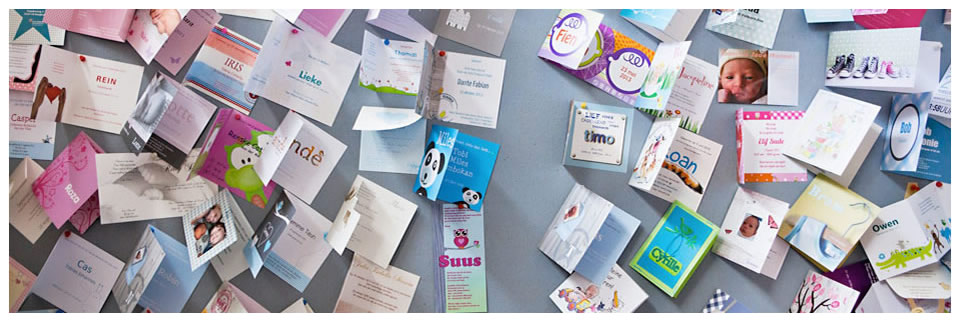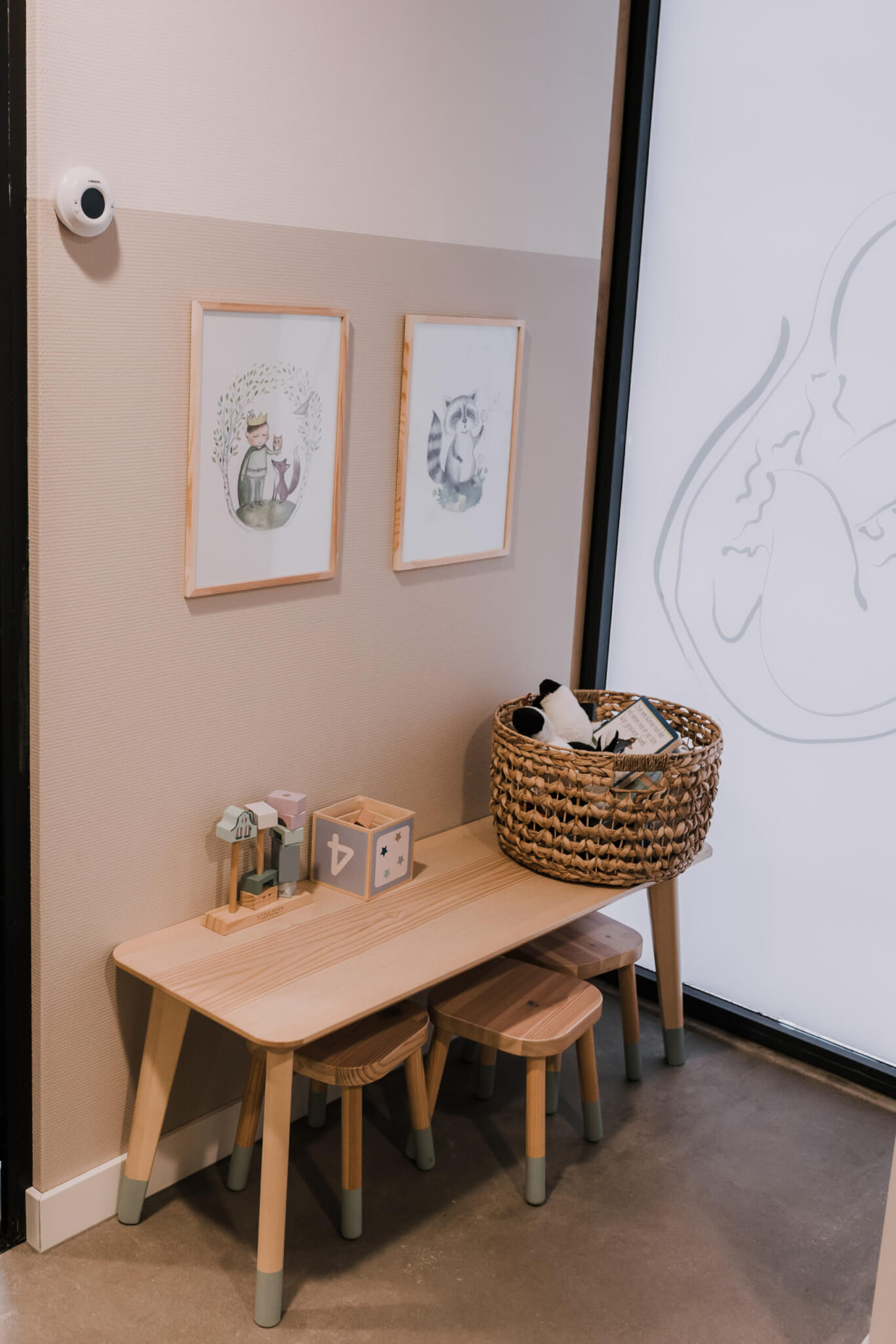
Common complaints during the postnatal period
During the postnatal period, your body is recovering from pregnancy and delivery. It is good to know what this entails and what to expect from this.
The maternity nurse will visit you every day to help you at home and to guide and support you with the care of your baby. During the first few days everything is new and exciting. Especially if it is your first child, there is a lot to learn!
So soon after delivery, the best advice is often to take plenty of rest. Experience has taught us that the first nights are often restless and very short. Try to catch up by sleeping in the afternoon (preferably together), don’t allow too many visitors and limit your own activities.
Below is an overview of the common complaints you may experience during your postnatal period. Also refer our Breastfeeding section for more information.
The first days after giving birth you may suffer from afterpains. These are caused by uterine contractions.
Afterpains often occur after a rapid delivery and when you are breastfeeding. Sometimes these are experienced as quite painful and unpleasant. You may want to use paracetamol to counteract the pain.
During your maternity week you may experience some very emotional periods. This means for example that there are days when you are crying for no obvious reasons at all. Often this is mainly due to your hormones. A lot changes in your hormone balance, to which your body reacts. There is not much you can do about it. This unstable period almost always goes away by itself.
Sometimes things can be a bit too much for you during the maternity week. You have to get used to the new situation and new responsibilities. Do you worry or worry a lot, talk about it and tell us.
Babies cry from the moment they are born. It is one of the ways babies show what they need. A baby may cry when it is hungry, has a dirty diaper, wants attention, is in pain, unwell, stressed or just tired and wants to sleep.
Normal crying behavior
From birth to 6 to 8 weeks of age, babies cry more. At the age of 6 to 8 weeks, babies cry an average of 2 to 2.5 hours a day. After that, the number of hours babies cry per day decreases again. After roughly 3 months the crying time has reduced 1 to 1.5 hours per day.
From 4 months on, babies are more interested in their environment. They can communicate and make contact more easily. This gives babies more opportunities to express themselves. The crying will then diminish more.
From 7 months, babies start using more and more gestures and words which will result in even less crying. A baby often cries at this age only as a last resort. For example in case of fatigue or stress.
What can you do?
It is important to look closely at your baby so that you can learn to recognize the signals. Often the crying stops when you respond to the signals. For example, by feeding, changing, comforting your baby by holding him close to you, by talking to him or by putting your baby to bed on time. You can also try to prevent crying by keeping your baby with you a lot and by creating more regularity and a peaceful environment.
Lots of crying
It is very annoying and stressful when your baby keeps crying and you don’t know why. This can make you feel very, very powerless. Usually there is no medical reason, but it is important to check this. If you have any questions about your baby’s crying behavior, please contact your GP or the ‘Centrum voor Jeugd en Gezin’ (Center for Youth and Family) (CJG).
As a new mother who has just given birth, you often have a lot of blood loss during the first few days. For many women, the amount can be compared to a heavy period. You may also lose blood clots.
Blood loss after childbirth often ceases after about 6 weeks. The blood loss is bright red in the beginning, then (dark) brown and later more yellowish (wound fluid) in color. The amount of blood loss can vary from day to day. If you become more active yourself, the blood loss can increase and turn a bright red color again. Sometimes it stops for a few days and then starts again.
As long as your flow is clear after delivery, you are not allowed to swim, have intercourse or use tampons. This is because of the danger of infection, so please pay special attention to your hygiene.
A newborn child is very susceptible to infections. The herpes virus, which causes the cold sores, can make them very sick. If you have a cold sore yourself, it is important to pay close attention to your hygiene. If necessary, wear a mouth mask and wash your hands thoroughly to prevent contamination. If a visitor comes with a cold sore, do not let them kiss or hug your child.
Most women experience a labile period in the maternity week, which is often referred to as baby blues. There is some information about that earlier in this section.
In about 10% of women, this unstable feeling does not go away. These women often feel sad and hopeless. They lose confidence in themselves and take less care of themselves. This gives them a lot of feelings of guilt towards their newborn baby, which can make the situation quite difficult.
Women who are facing this situation often feel that no one will understand the feelings they have. After all, shouldn’t they be happy? As a result, they often feel detached from their surroundings.
Obviously, these women need help. Then either you, your partner or someone close should call us or your GP urgently!
Not only the pregnancy, but also childbirth may be the cause of the development of hemorrhoids. Hemorrhoids can be quite painful and hinder your recovery during the postpartum period. Hemorrhoids eventually heal on their own, but sometimes require a medicine. Discuss your complaints with us and we may be able to prescribe a remedy for the hemorrhoids and provide you with the appropriate advice.
During the first few days it is normal for your nipples to be sensitive or sometimes painful for the first 30-60 seconds whilst breastfeeding, because muscles in the nipple are stretched. When the milk starts flowing, this feeling subsides.
After a few days, the nipples are used to this and the first suction no longer hurts. Feeding then feels pleasant. The time that takes varies from person to person.
If the sensitivity does not decrease after 60-90 seconds and the feeding still hurts, take your baby off the breast by inserting your little finger into the corner of your baby’s mouth. The vacuum will be broken and your baby will let go of the breast. Then reattach your baby.
During the first days after giving birth, take sufficient rest and limit the (frequent) walking of stairs. Pregnancy and childbirth can cause pain in your pelvis. These complaints can slowly improve through rest, relaxation and exercises. Discuss your complaints with us and, if necessary, consult a pelvic and / or physiotherapist for tips and advice after your delivery.
During childbirth, the pelvic floor muscles are stretched considerably. After delivery, these muscles slowly regain their old shape and strength, but that takes some time. During this period, women can suffer from pelvic floor complaints such as:
- leakage of urine, especially when coughing, sneezing, lifting (stress urinary incontinence)
- not being able to stop wind very well
- loss of stool
- a heavy feeling of pressure in the lower abdomen and pelvic floor
- pain in the pelvic floor area
- pain during sex
Often little attention is paid to these complaints as many women think that it is part of it and one has to simple deal with it. Many think that the complaints will disappear automatically, but, unfortunately, that is not always the case. If the above complaints are still not decreasing 6 weeks after delivery, it makes sense to do something about this and to contact a pelvic floor specialist. With the right guidance, pelvic floor complaints can be treated well, and life becomes a lot more pleasant!
Refer to Links for physiotherapists and pelvic floor specialists from whom we have heard good reviews.
Taking good care of your stitches is important to aid your healing. Shortly after giving birth, you can use cold compresses to reduce swelling and pain. In addition, it may be more pleasant during the first days to rinse with water or to urinate in the shower. The water will dilute your urine, so that the urine stings less.
Good hygiene is important to prevent infection. Change your bandages regularly, possibly rest with your buttocks naked in bed and, if necessary, take your buttocks in a soda bath. If you suspect an infection, it is good to consult with us. We will then look at the stitches and give the appropriate advice.
The suture material used is soluble. If the stitches really bother you, they can sometimes be removed around the 6th day.
After giving birth, make sure you urinate regularly. A full bladder prevents your uterus from contracting properly. This will cause abdominal pain (afterpains) and more blood loss.
Shortly after giving birth, you may lose control of your bladder and you don’t always realize when your bladder is full. Make sure you keep drinking enough and just urinate regularly (for example before each feeding).
Postnatal
Related topics
Contact

Would you like to register or do you have a question?
Contact us →
News
Move
New location As of April 1, we will move to our new location near Emiclaer, ‘Het masker 208/210’, is under …
Dutch midwifery system
In Holland we are unique! For some women it is different, another system than in their home country. This film …
English website online
The English translation of our website is complete and now available! We welcome your feedback in case of inconsistencies, mistakes, …
 Verloskundigen Amersfoort is gewaardeerd op ZorgkaartNederland.Bekijk alle waarderingen of plaats een waardering
Verloskundigen Amersfoort is gewaardeerd op ZorgkaartNederland.Bekijk alle waarderingen of plaats een waardering